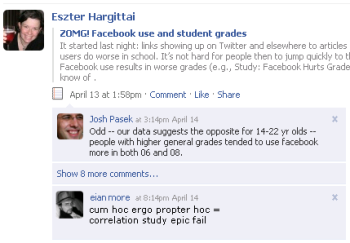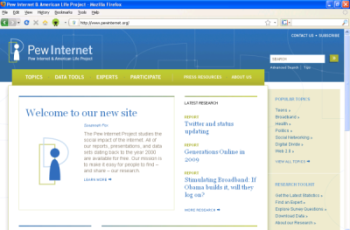Science-a-thon 2017
Thursday, July 13th, 2017Today is the first-ever Science-a-thon! Started by my graduate school pal Tracey Holloway, it’s a day to raise awareness of and funds for science. I copy her description here:
From Tracey Holloway:
Hi All –
You’ve probably heard about the study that over 80% of American’s can’t accurately name a living scientist — and my guess is that the numbers are similar when asking “what do scientists actually do?” Of course, we do lots of things – work in labs, go out in the field, teach classes, program computers – but the public doesn’t get to see this.
As a large-scale public outreach initiative, and the first major fundraiser for the Earth Science Women’s Network (ESWN), we’re launching Science-A-Thon. … an international “day of science” where participants share 12 photos over 12 hours of their day. From morning coffee through the ups and downs of a day in the life of a scientists (any scientist, any field of STEM, students, professionals – all are welcome).
We already have 100 scientists signed on – lots of earth scientists of course, but also cancer biologists, computer scientists, and more. Men and women, from 10 different countries so far. We’d love to have you! Just go to scienceathon.org/how to sign up. (And you’ll get a great “I love science” t-shirt)
If you’re not up for showcasing your own day, you can support ESWN and Science-A-Thon by sponsoring your favorite scientists (like me!)
You can donate here, if you are so inclined, any amount is appreciated.
Even if you’re not interested in donating to the cause, I highly recommend checking out the #scienceathon hashtag on Twitter as it’s a great way to get a sense of what a scientist’s day looks like.
Below are my twelve images of the day.
Image 1/12
 This is the main University of Zurich building that I passed with the tram this morning on my way to my office. (For those who’ve been reading CT for a while, yes, this is a change, I moved institutions and countries last year.)
This is the main University of Zurich building that I passed with the tram this morning on my way to my office. (For those who’ve been reading CT for a while, yes, this is a change, I moved institutions and countries last year.)
Image 3/12

The occasional break is necessary to stay productive. My preferred quick distraction is Ingress. Fortunately, my office sits on a portal (or if I’m lucky, three) so it’s an easy quick break before diving back into work. (For those who speak Pokemon Go better, that translates to two Pokestops.)
Image 4/12
 Research is rarely a solitary activity. Here I am meeting with one of my postdocs, Amanda Hunsaker, about researching older adults and Internet use. The beautiful plant in the corner is courtesy of a UZH program that includes someone coming and watering/dusting off/taking care of this marvel.
Research is rarely a solitary activity. Here I am meeting with one of my postdocs, Amanda Hunsaker, about researching older adults and Internet use. The beautiful plant in the corner is courtesy of a UZH program that includes someone coming and watering/dusting off/taking care of this marvel.
Image 5/12
 I find that a good desktop setup is important for staying on task, this works well for me.
I find that a good desktop setup is important for staying on task, this works well for me.
Image 6/12
 Lots of research happens through group meetings, this one an advisory board meeting conference call for an important CDC-supported project.
Lots of research happens through group meetings, this one an advisory board meeting conference call for an important CDC-supported project.
Image 7/12
 Touching base with my other postdoc, Marina Micheli, in preparation for a longer meeting tomorrow.
Touching base with my other postdoc, Marina Micheli, in preparation for a longer meeting tomorrow.
Image 8/12
 Went for a walk in the office neighborhood. This piece is next to my building. From one side, it looks like an abandoned log, from the other you realize it’s public art. I’m not sure I would have ever noticed it were it not for the fact that it is a portal in Ingress.
Went for a walk in the office neighborhood. This piece is next to my building. From one side, it looks like an abandoned log, from the other you realize it’s public art. I’m not sure I would have ever noticed it were it not for the fact that it is a portal in Ingress.
Image 9/12
 Science requires training future generations of researchers. Teaching courses, mentoring through research, and in this case grading their papers are ways I contribute to the cause.
Science requires training future generations of researchers. Teaching courses, mentoring through research, and in this case grading their papers are ways I contribute to the cause.
Image 10/12
 I’m old school when it comes to reading books, paper copies please.
I’m old school when it comes to reading books, paper copies please.
Image 11/12
 On my way home, I stopped at one of Zurich’s 1,200 fountains. That is, in fact, the number of fountains in the city. There are many that are quite beautiful. Zurich has the most fountains of any city in the world.
On my way home, I stopped at one of Zurich’s 1,200 fountains. That is, in fact, the number of fountains in the city. There are many that are quite beautiful. Zurich has the most fountains of any city in the world.
Image 12/12
 As my last picture of the day, I share with you a picture of my screen with one of my Instagram accounts, the one with one sky photo a day. I started this photo project over a year ago (I’m on day 452 to be precise). Every day I take a photo of the sky. The sky can be so beautiful and so different. I thought it was worth a moment to pause and take it in every day.
As my last picture of the day, I share with you a picture of my screen with one of my Instagram accounts, the one with one sky photo a day. I started this photo project over a year ago (I’m on day 452 to be precise). Every day I take a photo of the sky. The sky can be so beautiful and so different. I thought it was worth a moment to pause and take it in every day.

 More here
More here Following up on
Following up on 